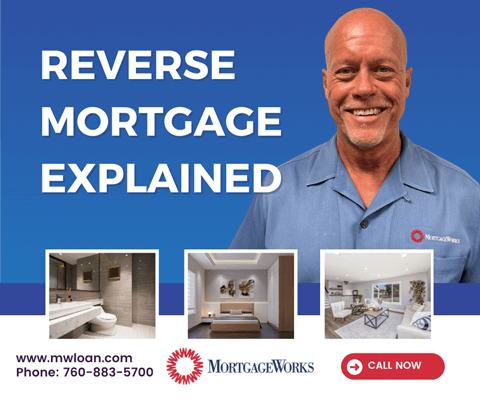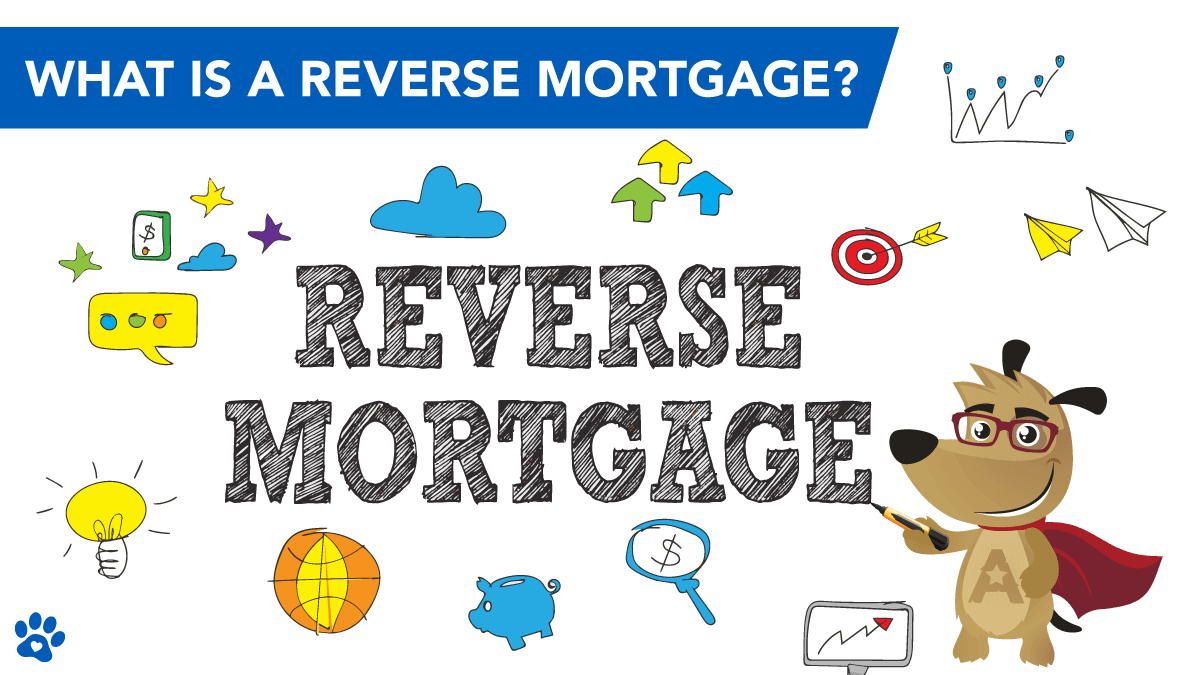What You Need to Know Before You Purchase Reverse Mortgage
Wiki Article
Unlock Financial Liberty: Your Guide to Purchasing a Reverse Home Loan
Understanding the intricacies of reverse home loans is vital for house owners aged 62 and older looking for economic flexibility. As you consider this choice, it is crucial to understand not only how it works however also the ramifications it might have on your economic future.What Is a Reverse Mortgage?

The essential allure of a reverse mortgage exists in its possible to enhance economic flexibility throughout retirement. Property owners can use the funds for various objectives, including medical expenses, home improvements, or daily living expenses, thus providing a safeguard during a crucial phase of life.
It is important to understand that while a reverse home loan permits for raised money flow, it likewise lowers the equity in the home with time. As rate of interest gathers on the outstanding loan equilibrium, it is crucial for possible debtors to meticulously consider their long-lasting financial plans. Consulting with an economic advisor or a reverse home mortgage specialist can provide valuable insights into whether this option straightens with an individual's monetary goals and scenarios.
Eligibility Demands
Recognizing the eligibility needs for a reverse mortgage is important for house owners considering this economic choice. To certify, candidates have to be at least 62 years old, as this age criterion allows elders to accessibility home equity without regular monthly mortgage repayments. Additionally, the home owner should occupy the residence as their main house, which can consist of single-family homes, particular condominiums, and produced homes meeting specific standards.Equity in the home is an additional necessary need; home owners usually require to have a considerable amount of equity, which can be identified via an assessment. The quantity of equity available will directly affect the reverse mortgage amount. Moreover, candidates need to show the capacity to preserve the home, including covering residential or commercial property taxes, property owners insurance, and maintenance expenses, ensuring the residential or commercial property remains in excellent problem.
Additionally, possible debtors should undergo an economic analysis to evaluate their revenue, credit report, and general monetary circumstance. This assessment helps loan providers figure out the applicant's ability to meet ongoing responsibilities associated with the building. Satisfying these requirements is important for securing a reverse home mortgage and guaranteeing a smooth financial change.
Advantages of Reverse Home Mortgages
Many benefits make reverse home loans an attractive alternative for seniors looking to enhance their financial versatility. purchase reverse mortgage. One of the key benefits is the capacity to convert home equity into cash money without the demand for regular monthly home mortgage settlements. This attribute allows elders to accessibility funds for different needs, such as clinical expenses, home enhancements, or daily living costs, thus easing financial anxietyFurthermore, reverse home mortgages give a safeguard; senior citizens can continue to reside in their homes for as long as they meet the car loan needs, promoting stability during retirement. The profits from a reverse mortgage can also be made use of to postpone Social Protection benefits, possibly causing greater payments later.
In addition, reverse home mortgages are non-recourse fundings, implying that borrowers will never owe greater than the home's value at the time of sale, securing them and their beneficiaries from monetary obligation. Last but not least, the funds obtained from a reverse home mortgage are normally tax-free, adding another layer of economic alleviation. On the whole, these benefits position reverse home loans as a useful option for elders looking for to improve their financial situation while keeping their treasured home atmosphere.

Expenses and Charges Entailed
When considering a reverse home mortgage, it's important to know the numerous prices and fees that can influence the general economic photo. Recognizing these expenditures is vital for making an informed decision concerning whether this monetary product is best for you.One of the primary prices related to a reverse home mortgage is the source charge, which can differ by lending institution but generally ranges from 0.5% to 2% of the home's appraised value. Furthermore, house owners need to prepare for closing expenses, which might consist of title insurance, evaluation charges, and credit history report charges, commonly amounting to numerous thousand bucks.
One more significant expenditure is home loan insurance why not try these out premiums (MIP), which protect the loan provider against losses. This cost is generally 2% of the home's worth at closing, with an ongoing annual costs of 0.5% of the staying lending equilibrium.
Finally, it is very important to think about recurring prices, such as real estate tax, home owner's insurance coverage, and upkeep, as the debtor stays accountable for these expenditures. By meticulously reviewing these charges and expenses, home owners can much better assess the monetary ramifications of seeking a reverse mortgage.
Steps to Begin
Beginning with a reverse home mortgage includes several essential steps that can help improve the process and ensure you make notified choices. Initially, assess your monetary circumstance and figure out if a reverse mortgage lines up with your lasting objectives. This includes examining your home equity, present financial debts, and the requirement for additional revenue.
Next, research study different lending institutions and their offerings. Search for reliable institutions with positive reviews, clear fee structures, and competitive rates of interest. It's vital to compare conditions and terms to locate the best fit for your needs.
After picking a lender, you'll need to finish an in-depth application process, which commonly needs documents of income, possessions, and residential property details. Involve in a counseling session with a HUD-approved counselor, who will supply insights into the effects and duties of a reverse home loan.
Verdict
To conclude, reverse home mortgages provide a sensible alternative for senior citizens seeking to boost their financial stability throughout retirement. By converting home equity into accessible funds, house owners aged 62 and older can resolve numerous economic needs without the pressure of month-to-month settlements. Understanding the ins and outs of eligibility, benefits, and linked expenses is vital for making informed decisions. Careful investigate this site consideration and preparation can bring about enhanced top quality of life, ensuring that retirement years are both safe and satisfying.Recognizing the ins and outs of reverse home mortgages is crucial for home owners aged 62 and older seeking economic freedom.A reverse home mortgage is an economic item created mainly for homeowners aged 62 and older, enabling them to transform a section of their home equity into money - purchase reverse mortgage. here are the findings Consulting with a monetary consultant or a reverse home loan expert can offer important understandings into whether this option lines up with an individual's economic goals and conditions
Furthermore, reverse home loans are non-recourse fundings, implying that customers will never ever owe more than the home's value at the time of sale, shielding them and their successors from economic responsibility. Generally, these advantages placement reverse mortgages as a useful service for senior citizens seeking to enhance their financial circumstance while preserving their treasured home setting.
Report this wiki page